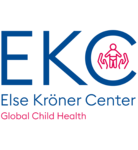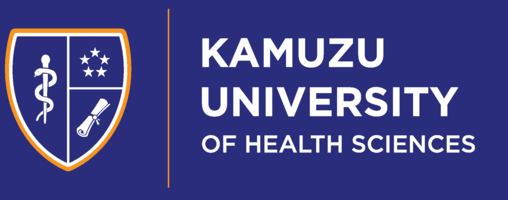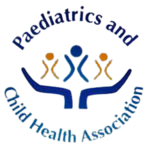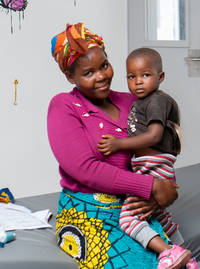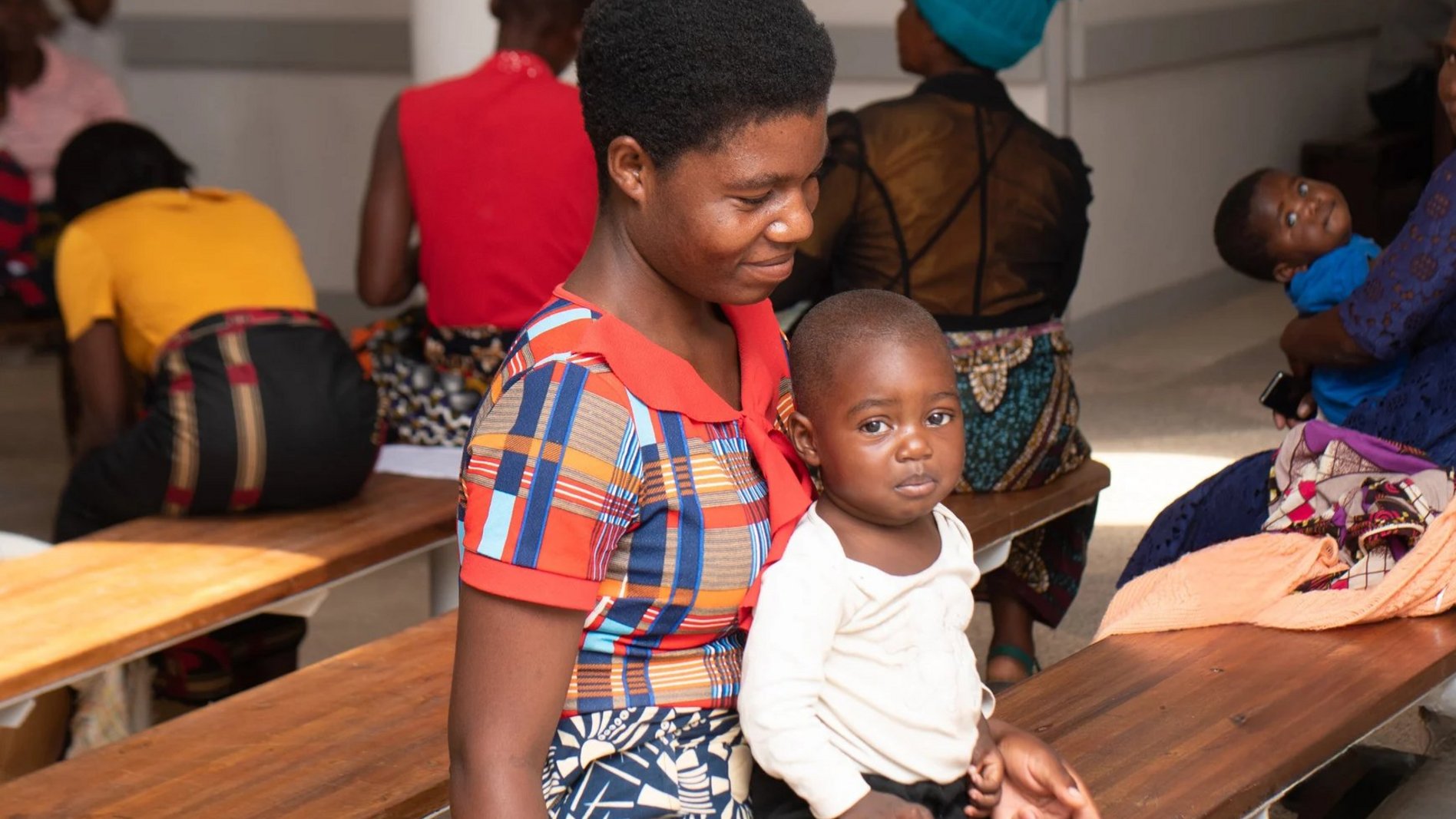
The Else Kröner Center for Global Child Health is dedicated to fostering the healthy development of children worldwide.
At present, it focuses its activities in Malawi and is actively contributing to the achievement of the Malawian child health targets which are aligned with the Sustainable Development Goals.
Our efforts are founded on an enduring partnership between the Kamuzu University of Health Sciences (KUHeS), the Paediatrics and Child Health Association (PACHA), and the Witten/ Herdecke University.
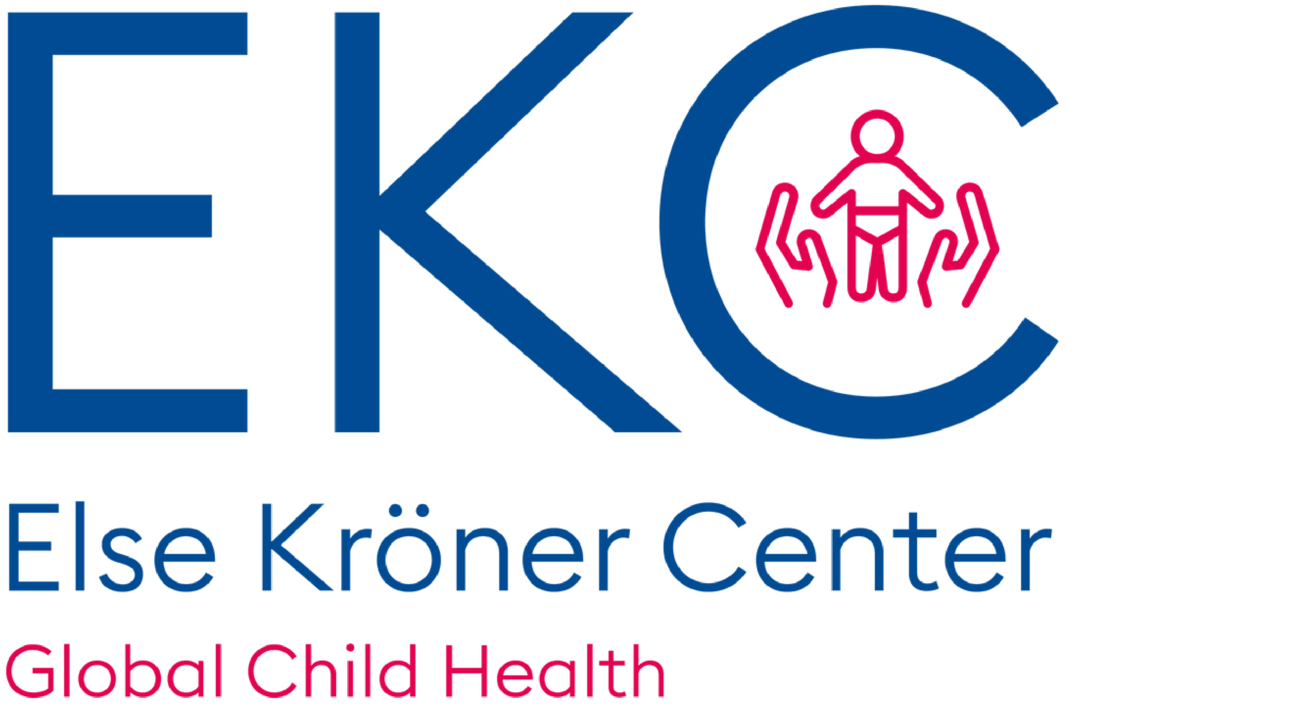
PROJECTS
Discover our initiatives dedicated to improving children's health worldwide.
TEAM
Meet our diverse team, tailored to each project.
PARTNER
Explore the partnerships that form the backbone of our projects.
PROJECT OVERVIEW
Paediatric NCD Guidelines
Umoyo Wa Ana Athu – Our Children’s Health
The Malawi - Else Kröner Child Health Programme: Levering Synergies for Prevention and Care
This project aims to achieve the following goals:
- Develop a national NCD child health service package: guidelines, training materials and communication tools, including an interactive web app for Malawian healthcare workers.
- Roll out the NCD package´s elements nationally, prioritizing geographical areas most in need
- Monitor and evaluate the NCD package´s impact on existing child health services
With over half of its population under 18, Malawi anticipates doubling its population by 2050.
While the threat of infectious diseases has diminished, non-communicable diseases (NCDs) now constitute a significant portion of the disease burden among children and adolescents in Malawi. However, healthcare workers are not adequately to address the changing health needs due to insufficient training and outdated resources for child NCDs.
This project aims to achieve the following goals:
Child Health NCD Guidelines
The development of paediatric NCD guidelines involved reviewing existing guidelines and incorporating insights from 30+ senior paediatricians across Malawi´s healthcare facilities. Each chapter combines clinical and public health aspects for a comprehensive approach. The final product undergoes internal and external reviews by project core members, paediatricians, external reviewers and relevant stakeholders.
Digital Strategy
We are developing a user-friendly app to deliver guidelines, support interactive training and foster collaboration among healthcare workers. The app is designed to be used offline and to track the app´s utilization. Feedback will be collected from healthcare workers to evaluate the overall acceptance and usability of the app.
Guideline implementation – Trainings of Trainers
Under the guidance of PACHA, the guidelines will be implemented initially through group training sessions utilizing the paper-based guidelines and the newly developed app.
Information, Education, and Communication (IEC) materials
IEC materials are being developed and deployed to inform patients, including children and their caregivers, about the importance of prevention, early screening and detection of NCDs, and the associated risks, as well as preventive measures. These materials aim to raise awareness and prevent negative consequences stemming from chronic conditions.
Monitoring and Evaluation (M&E)
The M&E process, utilizing interrupted time series analysis, will track project progress and success in central and district hospitals, along with designated health centres. Primary data sources include the Health Management Information System, patient mastercards, caretaker exit interviews, and healthcare worker surveys.
Training Paediatricians for Malawi
Training the future paediatric workforce in Malawi
This project aims to achieve the following goals:
To support the training of Malawian registrars in Malawi and South Africa to become paediatric specialists
To support child health services in Malawi by increasing the paediatric workforce and by seconding German registrars to Malawi
To enable German registrars to undergo part of their specialist training in Malawi
Malawi´s growing population places increasing demands on child healthcare, yet there is a critical shortage of paediatricians and limited access to post-graduate training. Kamuzu University of Health Sciences is the sole provider of Masters in Medicine, but structural and financial barriers hinder training pursuit. In Germany, healthcare professionals face challenges from shifting demographics and globalized diseases, like an increasing number of patients with foreign backgrounds and unfamiliar diseases. German doctors’ hands-on experience in Malawi could reciprocally benefit healthcare services in Germany.
Seven Malawian doctors undergo three years of post-graduate training at Queen Elizabeth Central Hospital in Blantyre. They then receive 15 months of additional training in South Africa, focusing on areas not covered in Malawi. Simultaneously, six German paediatric trainees and 12 volunteers work at the same hospital for six months each, with their training accredited by the regional medical council in Westphalia Lippe, Germany, contributing to their specialization.
You can find more information on the project pages
TEAM

Prof Dr. Yamikani F.G. Chimalizeni
- Consultant Paediatrician, Paediatric Cardiologist at Queen Elizabeth Central Hospital, Malawi
- Associate Professor of Paediatrics and Child Health at Kamuzu University of Health Science, Malawi

Dr Emmie Mbale, MBBS, MSc Trop Paediatrics, FC Paed/SA
- Consultant Paediatrician at Queen Elizabeth Central Hospital, Malawi
- Lecturer at Kamuzu University of Health Sciences, Malawi
- Vice President, Paediatric and Child Health Association (PACHA), Malawi

Prof. Dr. Elizabeth Molyneux, OBE., DSc.,
- Emeritus Professor of Paediatrics and Child Health at Kamuzu University of Health Sciences, Malawi

Prof Dr. Ralf Weigel MD, MSc., PhD, FRCPCH
- Professor at the Friede Springer Endowed Professorship for Global Child Health at the Faculty of Health, Witten/ Herdecke University, Germany

PD Dr. med. Carsten Krüger, MD, MIH, FRCPCH
- Lecturer at Friede Springer Endowed Professorship for Global Child Health, Faculty of Health, Witten/Herdecke University, Germany
- Consultant Paediatrician, Neonatologist, Paediatric Gastroenterologist,
- Head of Department of Paediatrics and Neonatology, St. Franziskus Hospital Ahlen, Germany
